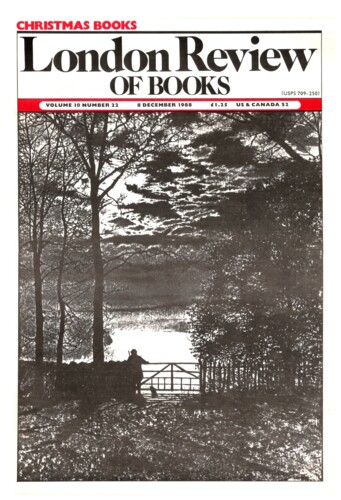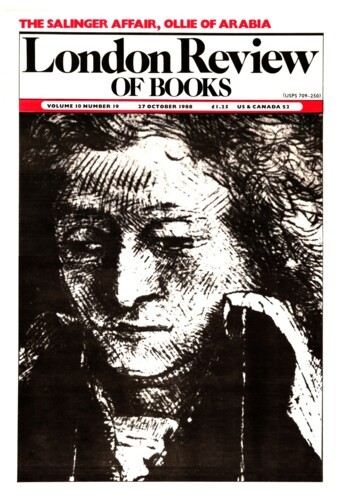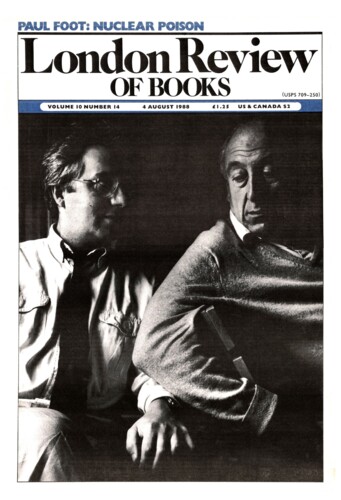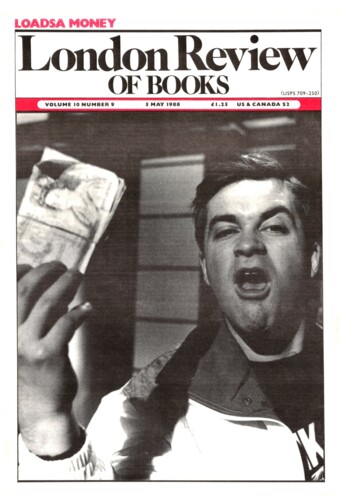Diary: Moneyspeak
W.G. Runciman, 8 December 1988
Readers of my occasional contributions to the London Review who have consulted the Notes on Contributors will know that I earn my living as chairman of a public limited company rather than as an academic. But only those who are also readers of the Business Sections of their newspapers will know that the company in question has recently been involved in fighting off a hostile takeover. I meant, when it started, to keep a proper diary day by day. But the intention soon wilted in the Sturm und Drang of battle, and I am left only with a few internal company memos, a file of press cuttings, a set of circulars to shareholders, and some clear but no doubt imperfectly reliable recollections of particular episodes. When asked, ‘What was it like?’ I generally answer: ‘bad for the schedule but good for the adrenalin.’ But more to the point, it was one of those things like a divorce or a car crash which you think only happen to other people until the day they actually happen to you.





